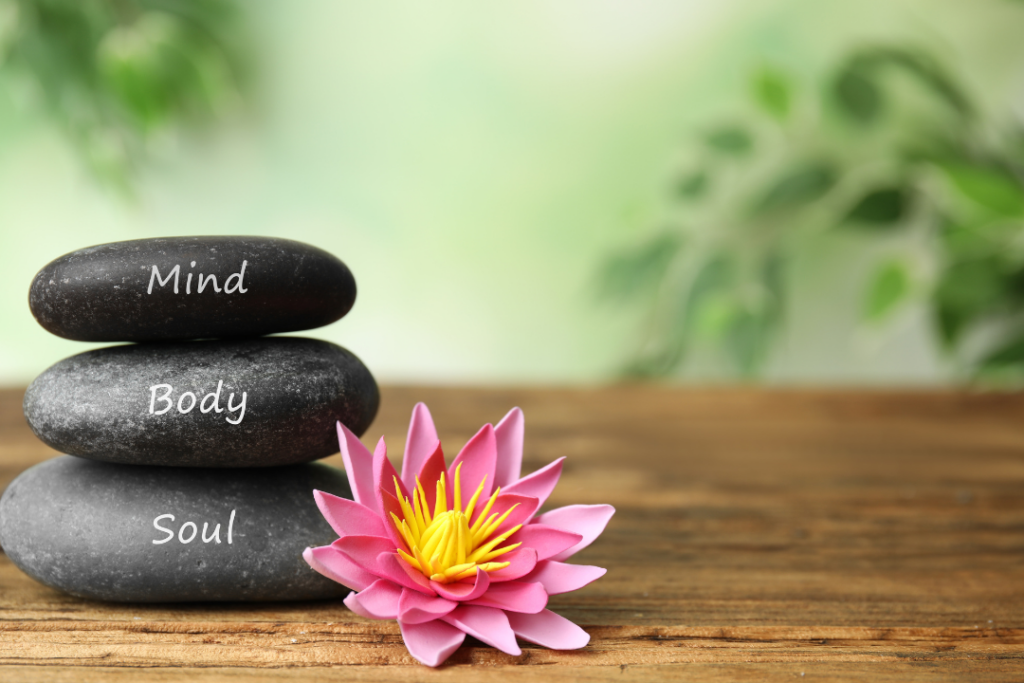Ayurveda for Mental Health

Ayurveda, the ancient Indian system of medicine, provides a holistic approach to mental health by emphasizing the balance of mind, body, and spirit. It recognizes the interconnectedness of mental and physical well-being and offers personalized treatments to promote mental health and emotional stability.
Key Principles of Ayurveda for Mental Health
Balancing Doshas:
- Mental health is influenced by the balance of the three doshas: Vata, Pitta, and Kapha. An imbalance in these doshas can lead to various mental health issues. For example, excess Vata can cause anxiety, excess Pitta can lead to anger and irritability, and excess Kapha can result in depression and lethargy.
Prana (Life Force):
- Prana, or life force, is crucial for mental health. It is responsible for clarity of thought, vitality, and emotional balance. Practices that enhance the flow of Prana, such as Pranayama (breathing exercises) and meditation, are vital for maintaining mental well-being.
Common Mental Health Issues Addressed by Ayurveda
Anxiety and Stress:
- Ayurvedic herbs like Ashwagandha, Brahmi, and Jatamansi are known for their adaptogenic properties, helping to reduce stress and anxiety by balancing Vata dosha and calming the nervous system.
Depression:
- Treatments focus on balancing Kapha dosha and uplifting the mind and spirit. Herbs like Shankhpushpi and Guduchi, along with therapies like Abhyanga (oil massage) and Nasya (nasal therapy), are effective in managing depression.
Insomnia:
- Imbalanced Vata often leads to sleep disorders. Ayurvedic remedies include herbs such as Tagara and Sarpagandha, along with practices like Shirodhara (a therapeutic procedure involving the pouring of warm oil over the forehead) to promote restful sleep.
Ayurvedic Practices for Mental Health
Diet and Nutrition:
- A balanced diet that suits one’s dosha helps maintain mental clarity and emotional balance. For example, Vata types benefit from warm, grounding foods, Pitta types from cooling, soothing foods, and Kapha types from light, energizing foods.
Herbal Remedies:
- Ayurvedic herbs play a crucial role in supporting mental health. Brahmi enhances cognitive function and memory, Ashwagandha reduces stress and anxiety, and Shankhpushpi calms the mind and promotes relaxation.
Meditation and Yoga:
- Regular meditation and yoga practices help balance the doshas and enhance mental clarity, emotional stability, and overall well-being. Techniques like mindfulness meditation and specific yoga asanas (postures) tailored to one’s dosha are particularly beneficial.
Pranayama (Breathing Exercises):
- Breathing exercises such as Nadi Shodhana (alternate nostril breathing) and Bhramari (humming bee breath) help regulate Prana and calm the mind, reducing stress and anxiety.
Daily Routine (Dinacharya):
- Establishing a consistent daily routine helps stabilize mental functions and promote overall balance. This includes regular sleep patterns, timely meals, and self-care practices like Abhyanga (self-massage with oil).
Seasonal Routine (Ritucharya):
- Adjusting lifestyle and dietary habits according to the seasons helps maintain mental balance and prevent seasonal affective disorders.
Benefits of Ayurveda for Mental Health
- Stress Reduction: Ayurvedic practices effectively reduce stress and enhance mental resilience.
- Improved Sleep: Natural remedies and therapies promote restful sleep and improve sleep quality.
- Emotional Balance: By balancing the doshas, Ayurveda helps manage emotions and enhance emotional stability.
- Enhanced Cognitive Function: Ayurvedic herbs and practices improve memory, concentration, and cognitive functions.
- Holistic Well-being: A comprehensive approach to health that integrates body, mind, and spirit promotes overall well-being.
Ayurveda for mental health offers a holistic and personalized approach, emphasizing the balance of doshas and the flow of Prana. By incorporating these ancient practices into daily life, individuals can achieve mental clarity, emotional stability, and overall mental well-being.
